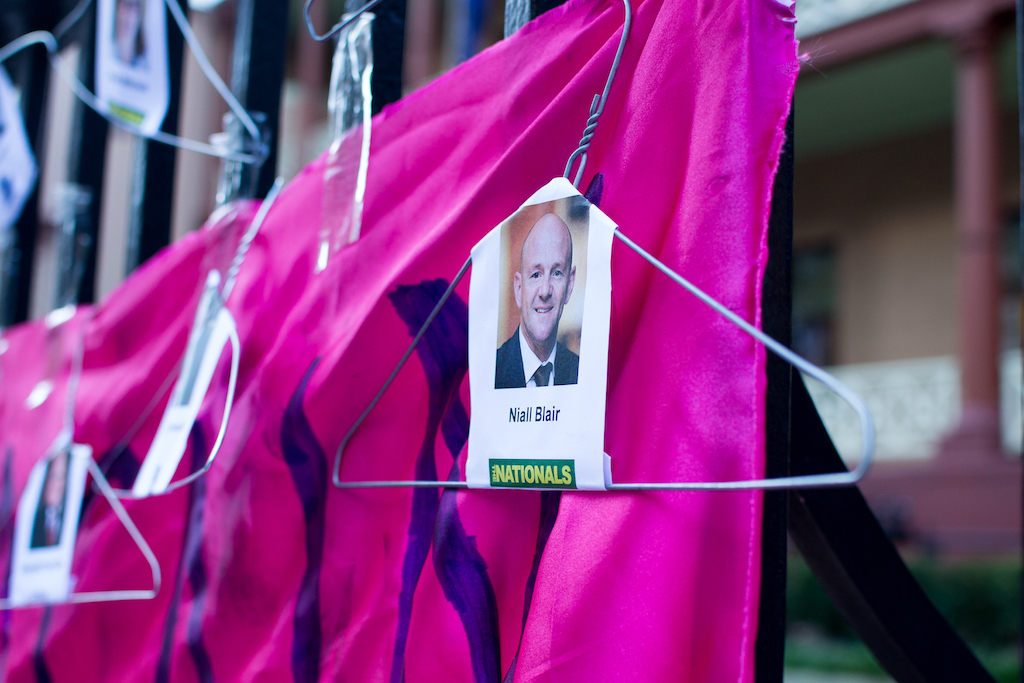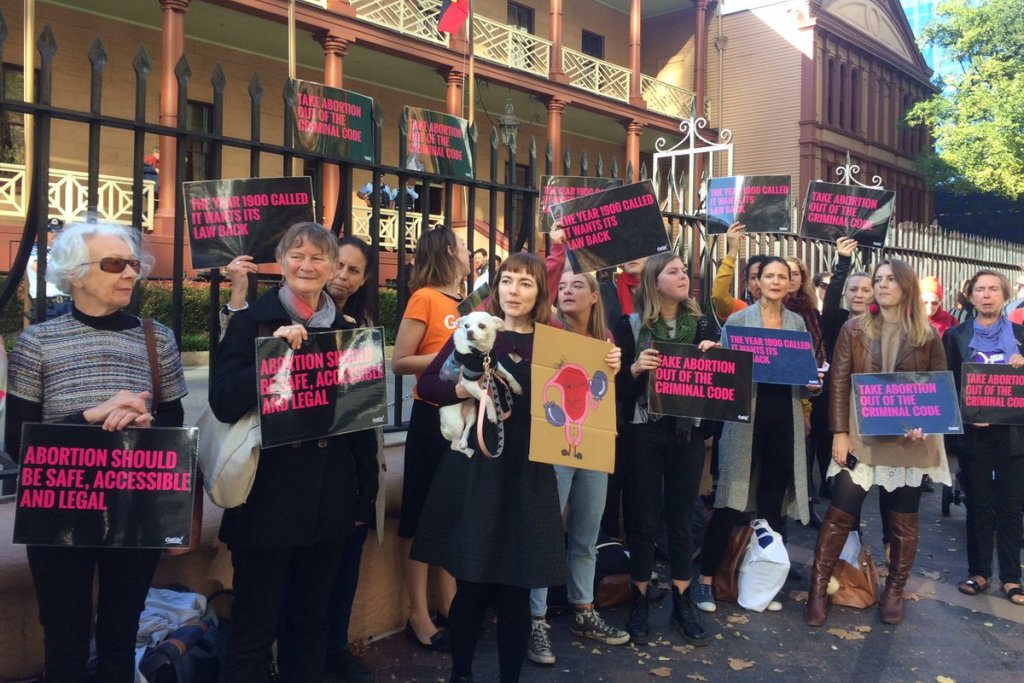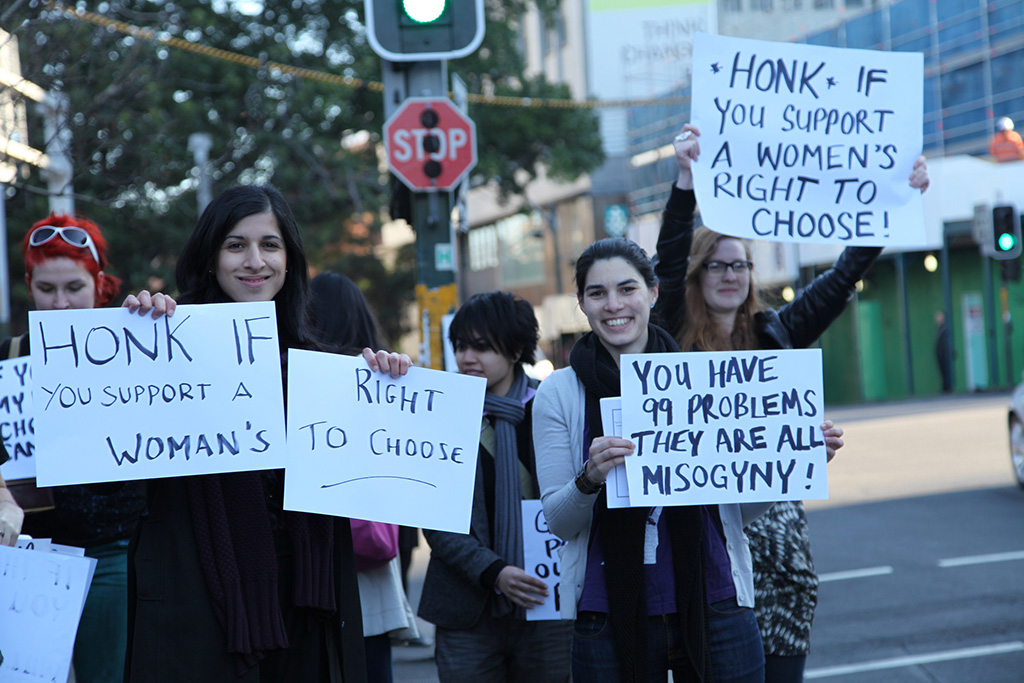A Woman’s Abortion Conviction Is An Unexpected Wake-Up Call, Experts Say

Legal experts say that a Sydney woman’s conviction for taking abortion drugs is almost unheard of in NSW, and that the surprising case highlights the urgent need for abortion law reform.
In a judgment handed down on July 5 in Blacktown Local Court, Magistrate Geoff Hiatt found a woman who self-administered drugs to abort her pregnancy guilty of a criminal offence. The maximum penalty for the offence is 10 years imprisonment but as it was dealt with summarily in a local court the convicted woman faces a maximum two year sentence.
Abortion remains illegal in NSW due to a section of the Crimes Act which has remained unchanged for 117 years. A recent push by the Greens to decriminalise abortion failed to secure parliamentary support. Previous judgements on abortion offences have established that some abortions can be legal if a doctor determines it necessary to prevent harm to the life or health of the pregnant person.
This stance lags behind most other Australian states, which have largely decriminalised abortion.
In the case, the court heard that the 28-year-old woman’s boyfriend urged her to terminate her pregnancy at 26 weeks. She then contacted a number of clinics, but was unable to find one that would perform a termination after 20 weeks.
According to the judgment, the woman then “found someone she believed was in Darwin, known as ‘Patrick’, who was prepared to facilitate a termination. She contacted Patrick through both the internet and by phone. The person Patrick told her a termination was possible up to 30 weeks and he would send her pills for the payment of $2,000.”
She then received the medication, a hormonal substance known as misoprostol, in a package originating from South Africa. After ingesting the medication and feeling unwell, a friend took her to Blacktown Hospital where an emergency caesarian was performed. The judgment does not mentioned whether the child survived.
Experts Are Unaware Of Any Cases Like This
Legal experts Junkee spoke to said that prosecutions for abortion-related offences are extremely rare in NSW, and that this case stands out as a wake-up call for those who have become complacent about abortion remaining in the Crimes Act.
Associate Professor Arlie Loughnan from the University of Sydney Law School, and Julie Hamblin, a Sydney lawyer with decades of experience in health law, said they were unaware of previous cases where a pregnant individual was convicted of an abortion-related offence in NSW, especially in recent years.
They said that while it is possible that under-publicised local court convictions exist, and noted that in 2006 a doctor was convicted under the act, the July 5 conviction is nonetheless incredibly rare and surprising.
Julie Hamblin told Junkee the case “came out of the blue”, and “demonstrates what a serious problem we have in NSW, with abortion still in the Crimes Act.”
“Medical practitioners are already hesitant to perform abortions.” she said, “What this decision does is demonstrate that doctors and their patients risk having this law used against them at any time.”
“Many abortions that are currently being carried out might not withstand legal scrutiny, but the law is mostly not strictly applied. What this case does, I think, is show that you can’t assume that you’re okay because the law won’t be enforced. This case came out of the blue, and now this woman has a criminal record.”
Is This Case Only About Late-Term Abortions?
Associate Professor Arlie Loughnan said that while it is possible this particular case only led to prosecution due to the extraordinary circumstances involved (it being a late term abortion without proper medical advice), the judgment still represents a “wake-up call about an ongoing issue”, namely that “abortion being in the Crimes Act represents a hangover from a previous era”.
Hamblin similarly noted that while this case does not necessarily mean that prosecutions for abortion-related offences will increase in future, it nonetheless flags that they may. Under the law as it currently exists, there is no reason that early-term abortions with proper medical supervision couldn’t be similarly challenged. Whether a case is prosecuted is at the discretion of the Director of Public Prosecutions.
“I think this really shows we can’t be complacent,” Hamblin said, emphasising that whether or not people believe that the late-term abortion in the July 5 case should have been legal is irrelevant.
“In relation to the issue of late term abortions, my personal view is that they are extremely challenging cases, and you really need to deal with them on an individual basis. You can accommodate this in a well-drafted law that says, for example, that after a certain number of weeks gestation, additional procedures have to be followed to address concerns about late term abortions.”
Such legal reform would be able to implement appropriate safeguards, while removing uncertainty for people seeking out more common, early-term abortion procedures, Hamblin said.
Junkee contacted the Director of Public Prosecutions to clarify why this particular case led to prosecution, and whether this represents an intention to begin prosecuting abortion cases more frequently in NSW. We’ll update this article if we receive a response.
Some Politicians Say The Conviction Is Proof We Need To Decriminalise Abortion
NSW Greens MP Dr Mehreen Faruqi, who introduced legislation to decriminalise abortion this year, said that the recent conviction demonstrates the urgent need to reform the law.
“People have argued that the lack of prosecutions in recent times makes abortion effectively legal in NSW,” she said, “But the Magistrate in this judgement made clear the intention of the current law is to criminalise abortion, regardless of the gestation age. This ruling highlights why Parliament needs to act to fix this 117 year old law and decriminalise abortion.”
“Decriminalising abortion will remove the stigma around abortion and improve access. Decisions around pregnancy termination must be made between medical practitioners and patients in a health facility, with the provision of information and care, and not in criminal courts.”
Labor MP Penny Sharpe, who introduced a separate bill supporting safe access zones around abortion clinics, agreed that the judgment demonstrates that abortion decriminalisation is urgently necessary to ensure people have access to proper medical advice and options without fear of prosecution.
“Decriminalisation would allow these issues to be discussed more openly with better information,” she said.
“It would provide for public provision in the public system where a woman could be properly cared for and supported under a clinical structure that would never have left her at the mercy of unqualified people on the internet.”
_
Feature image via Rob Pyne/Facebook.




